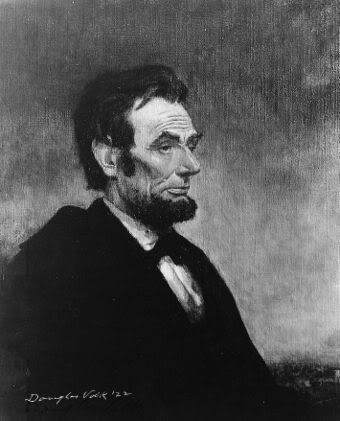
I. Meditation on the Divine Will, Washington, D.C. Sept, 1862
This fragment was found and preserved by John Hay, one of President Lincoln's secretaries, who said it was "not written to be seen of men." Some of the thoughts expressed here, written after discouraging days of personal sorrow and military defeats, also appear in Lincoln's Second Inaugural Address of 1865.
The will of God prevails.
In great contests each party claims to act in accordance
with the will of God.
Both may be, and one must be, wrong.
God cannot be for and against the same thing at the same time.
In the present civil war it is quite possible that God's purpose
is something different from the purpose of either party;
and yet the human instrumentalities, working just as they do,
are of the best adaptation to effect his purpose.
I am almost ready to say that this is probably true; that God wills this contest,
and wills that it shall not end yet.
By his mere great power on the minds of the now contestants,
he could have either saved or destroyed the Union without a human contest. Yet the contest began. And, having begun, he could give the final victory
to either side any day.
Yet the contest proceeds.
II. Second Inaugural Address, Saturday, March 4, 1865
… Both (warring parties) read the same Bible and pray to the same God, and each invokes His aid against the other. It may seem strange that any men should dare to ask a just God's assistance in wringing their bread from the sweat of other men's faces, but let us judge not, that we be not judged. The prayers of both could not be answered. That of neither has been answered fully. The Almighty has His own purposes. "Woe unto the world because of offenses…." If we shall suppose that American slavery is one of those offenses which, in the providence of God, must needs come, but which, having continued through His appointed time, He now wills to remove, and that He gives to both North and South this terrible war as the woe due to those by whom the offense came, shall we discern therein any departure from those divine attributes which the believers in a living God always ascribe to Him? Fondly do we hope, fervently do we pray, that this mighty scourge of war may speedily pass away…
QUESTIONS;
1, How does Lincoln resolve the tension between divine omniscience
and human free will?
2. What is Lincoln’s theodicy (explanation for evil and suffering in
the creation of a perfect God)?
3. How might you apply Lincoln’s insights to today’s problems?



























































































